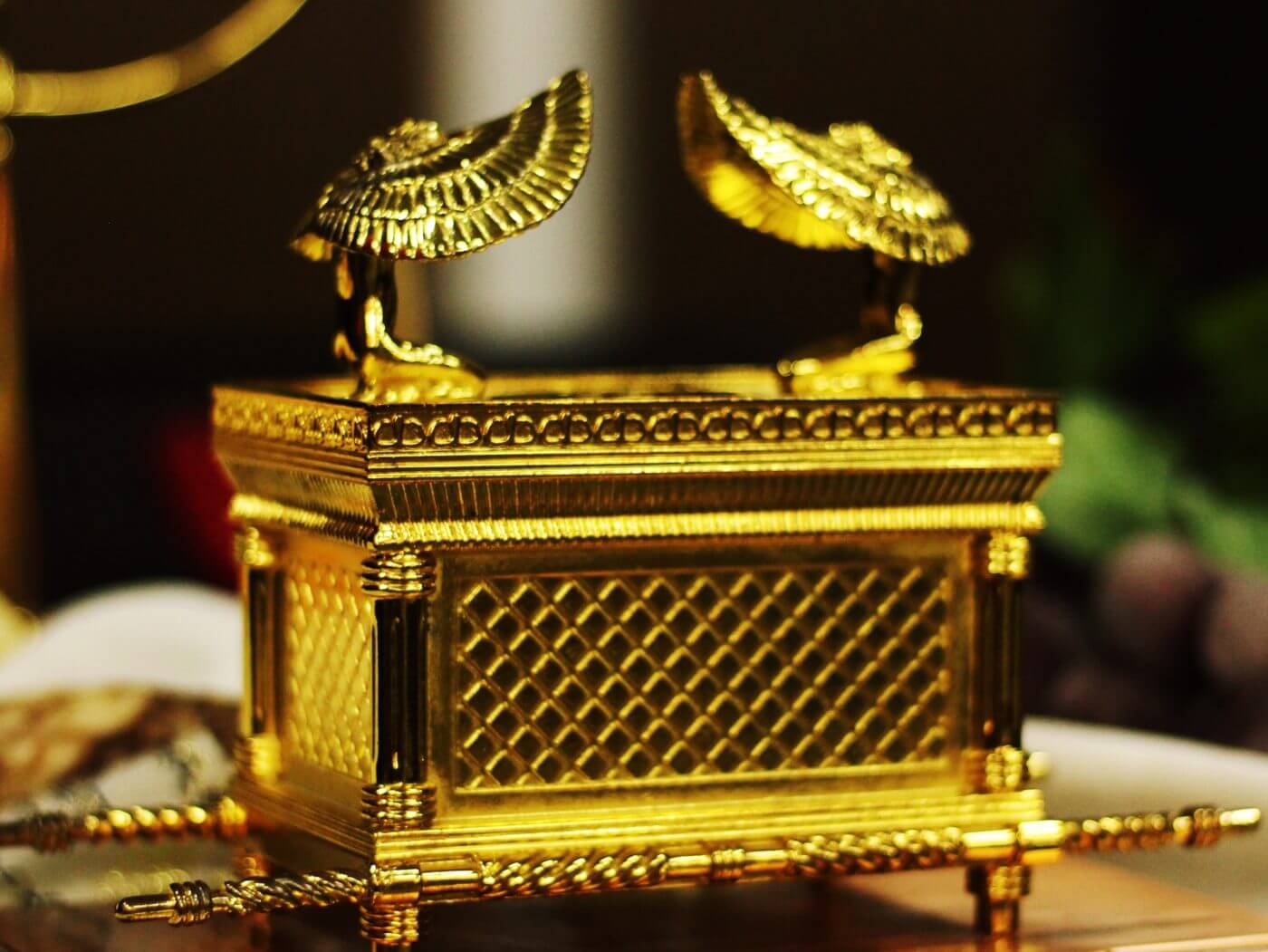
The Drive
Pain
Genesis 37:1-36

God blessed Abraham’s grandson Jacob with a large family, and in time, his twelve sons became the fathers of the twelve tribes of Israel. God kept His promise to Abraham, and His blessing was on this extended family that would one day become a great nation.
The family was not without its problems. Tensions among the brothers focused on Joseph. God had given him a dream that seemed to indicate Joseph would be given a position of prominence over his brothers. The brothers were not impressed, and they decided that it was time to teach Joseph a lesson in humility.
One day, when they were out in the fields, Joseph’s brothers attacked him. They threw him in a pit and left him there until some traveling traders came by. They sold Joseph to the travelers, who took him to Egypt, and the brothers returned home to tell their father, Jacob, that Joseph had been killed by a wild animal. Jacob was inconsolable in his grief (Genesis 37).
This story takes us down into the second valley, where we discover the suffering of the family God had chosen to bless. Because God promised His blessing to all nations through the line of Abraham’s descendants, the hope of the world was tied to the future of this troubled family.
Cruel Rewards for Integrity
When the travelers arrived in Egypt, they sold Joseph to Potiphar, a distinguished official in Pharaoh’s government (Genesis 39:1). God gave Joseph success in everything he did, and eventually Potiphar put Joseph in charge of his household (39:3–4). But things got complicated when Potiphar’s wife tried to seduce him and Joseph ran from the house. Seeking revenge, Potiphar’s wife claimed that he had tried to rape her. By the end of the day, Joseph found himself incarcerated alongside the king’s prisoners. It was harsh treatment for a man who had acted with integrity.
God was with Joseph in prison and gave him the ability to accurately predict the future by interpreting dreams. Pharaoh had been troubled by dreams in which he had seen seven fat cows eaten by seven thin cows, and so when he heard about Joseph, he sent for him. Joseph told Pharaoh that God was showing him what the future held. Seven years of abundant harvests would be followed by seven years of famine (41:28–30).
Pharaoh recognized that God had revealed this to Joseph and put him in charge of building reserves of grain that would sustain the population during the coming years of famine. Joseph became the fastest rising star in political history, and next to Pharaoh, he became the most powerful man in Egypt (41:39–40).
God Meant It for Good
Meanwhile back in Canaan, Joseph’s father and brothers knew nothing of the coming famine and did nothing to prepare for it. When the famine came, they were desperate. Hearing news that there was grain in Egypt, Joseph’s brothers traveled there in the hope of finding food.
They knew nothing of what God had done for Joseph. At first they did not recognize him, and when he eventually revealed his identity, they were terrified (Genesis 45:3). But Joseph forgave them. He saw that God had been at work even in the painful experiences of his life. Through an extraordinary chain of cruel events involving the brothers, the slave traders, and Potiphar’s wife, God had put Joseph in a position to save the family He had chosen to bless from being wiped out by the famine. “It was to save lives that God sent me ahead of you,” he said. “You intended to harm me, but God intended it for good” (Genesis 45:5; 50:20).
The First Holocaust
The family God had chosen to bless settled in Egypt. There were seventy-five of them when they arrived (Acts 7:14), and in the years that followed, the family prospered. But things changed quickly when a new ruler came to power in Egypt (Exodus 1:8). He was troubled by the rapid growth of the Israelites, so he launched a fierce persecution against them, forcing them to work in fields and on building sites for long hours in dreadful conditions (Exodus 1:9, 14).
God’s people continued to thrive even under oppression, and so Pharaoh introduced his final solution: state-sponsored infanticide. He ordered that every newborn male child should be drowned in the River Nile (Exodus 1:22). Pharaoh’s racial prejudice blinded him to the unique dignity and value of every human life. It was the first holocaust.
The new pharaoh knew nothing about Joseph and nothing about the God of the Bible who had saved His nation from disaster in the famine. Where God is not known, human life is not valued; and where human life is not valued, evil will soon be unleashed.
God had protected His people from the famine in Egypt, but it was never His purpose that they should stay there. And it was through this fierce and prolonged persecution that the Hebrews who had once been comfortably settled in Egypt began to cry out to God for rescue.
After four hundred years in which there had been no significant progress in God’s plan to bring blessing to the human race, God was about to step into the course of history again and bring His people into the land He had promised.
A View from the Second Valley
In the second valley, we are confronted with the reality of evil and the mystery of suffering. Why did God allow the people He had blessed to experience so much pain? God has not chosen to answer that question fully. But the second valley of the Bible story shows us that even our most painful suffering will find its place in the ultimate purpose of God.
Genesis 37:1-36
Joseph’s Dreams
1 Jacob lived in the land of his father’s sojournings, in the land of Canaan.
2 These are the generations of Jacob.
Joseph, being seventeen years old, was pasturing the flock with his brothers. He was a boy with the sons of Bilhah and Zilpah, his father’s wives. And Joseph brought a bad report of them to their father. 3 Now Israel loved Joseph more than any other of his sons, because he was the son of his old age. And he made him a robe of many colors. 4 But when his brothers saw that their father loved him more than all his brothers, they hated him and could not speak peacefully to him.
5 Now Joseph had a dream, and when he told it to his brothers they hated him even more. 6 He said to them, “Hear this dream that I have dreamed: 7 Behold, we were binding sheaves in the field, and behold, my sheaf arose and stood upright. And behold, your sheaves gathered around it and bowed down to my sheaf.” 8 His brothers said to him, “Are you indeed to reign over us? Or are you indeed to rule over us?” So they hated him even more for his dreams and for his words.
9 Then he dreamed another dream and told it to his brothers and said, “Behold, I have dreamed another dream. Behold, the sun, the moon, and eleven stars were bowing down to me.” 10 But when he told it to his father and to his brothers, his father rebuked him and said to him, “What is this dream that you have dreamed? Shall I and your mother and your brothers indeed come to bow ourselves to the ground before you?” 11 And his brothers were jealous of him, but his father kept the saying in mind.
Joseph Sold by His Brothers
12 Now his brothers went to pasture their father’s flock near Shechem. 13 And Israel said to Joseph, “Are not your brothers pasturing the flock at Shechem? Come, I will send you to them.” And he said to him, “Here I am.” 14 So he said to him, “Go now, see if it is well with your brothers and with the flock, and bring me word.” So he sent him from the Valley of Hebron, and he came to Shechem. 15 And a man found him wandering in the fields. And the man asked him, “What are you seeking?” 16 “I am seeking my brothers,” he said. “Tell me, please, where they are pasturing the flock.” 17 And the man said, “They have gone away, for I heard them say, ‘Let us go to Dothan.’” So Joseph went after his brothers and found them at Dothan.
18 They saw him from afar, and before he came near to them they conspired against him to kill him. 19 They said to one another, “Here comes this dreamer. 20 Come now, let us kill him and throw him into one of the pits. Then we will say that a fierce animal has devoured him, and we will see what will become of his dreams.” 21 But when Reuben heard it, he rescued him out of their hands, saying, “Let us not take his life.” 22 And Reuben said to them, “Shed no blood; throw him into this pit here in the wilderness, but do not lay a hand on him”—that he might rescue him out of their hand to restore him to his father. 23 So when Joseph came to his brothers, they stripped him of his robe, the robe of many colors that he wore. 24 And they took him and threw him into a pit. The pit was empty; there was no water in it.
25 Then they sat down to eat. And looking up they saw a caravan of Ishmaelites coming from Gilead, with their camels bearing gum, balm, and myrrh, on their way to carry it down to Egypt. 26 Then Judah said to his brothers, “What profit is it if we kill our brother and conceal his blood? 27 Come, let us sell him to the Ishmaelites, and let not our hand be upon him, for he is our brother, our own flesh.” And his brothers listened to him. 28 Then Midianite traders passed by. And they drew Joseph up and lifted him out of the pit, and sold him to the Ishmaelites for twenty shekels of silver. They took Joseph to Egypt.
29 When Reuben returned to the pit and saw that Joseph was not in the pit, he tore his clothes 30 and returned to his brothers and said, “The boy is gone, and I, where shall I go?” 31 Then they took Joseph’s robe and slaughtered a goat and dipped the robe in the blood. 32 And they sent the robe of many colors and brought it to their father and said, “This we have found; please identify whether it is your son’s robe or not.” 33 And he identified it and said, “It is my son’s robe. A fierce animal has devoured him. Joseph is without doubt torn to pieces.” 34 Then Jacob tore his garments and put sackcloth on his loins and mourned for his son many days. 35 All his sons and all his daughters rose up to comfort him, but he refused to be comforted and said, “No, I shall go down to Sheol to my son, mourning.” Thus his father wept for him. 36 Meanwhile the Midianites had sold him in Egypt to Potiphar, an officer of Pharaoh, the captain of the guard.
(ESV)
Use these questions to further engage with God's Word. Discuss them with another person or use them as personal reflection questions.

Take the First Step to Open Your Bible
Join 35,000+ people who get ‘Open Weekly’. Every Wednesday, you’ll get hand-picked resources designed to inspire, encourage, and challenge you in opening your Bible.
Join Pastor Colin In-Person!
Do you want to understand the Bible story? 📖
Pastor Colin Smith’s upcoming event FLY THROUGH THE BIBLE, is a high-altitude exploration of the entire Bible story. This brief introduction to the Bible will help you grasp who God is, who you are, who Jesus is, and what He offers to you!
Coming to 4 cities this fall:
- St. Louis, Missouri
- Twin Cities, Minnesota
- Des Moines, Iowa
- Indianapolis, Indiana
Will you join us?

It looks like you're viewing the site from outside the US. Click below to visit our UK site or close this pop-up to view the international site.
